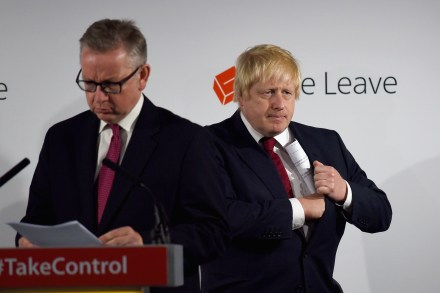George Osborne admits he’ll miss his own surplus target
Finally George Osborne has seen an upside to Britain voting to leave the European Union. The Chancellor used this morning to abandon another one of his own economic targets, blaming it on Brexit. He has long been warned by experts such as the Institute for Fiscal Studies that he is likely to fail to deliver a £10bn surplus on the public finances by 2020, and today he admitted as much. The Chancellor said: ‘Now, as the governor of the Bank of England said yesterday, the referendum result is as expected likely to lead to a significant negative shock for the British economy. How we respond will determine the impact on


















